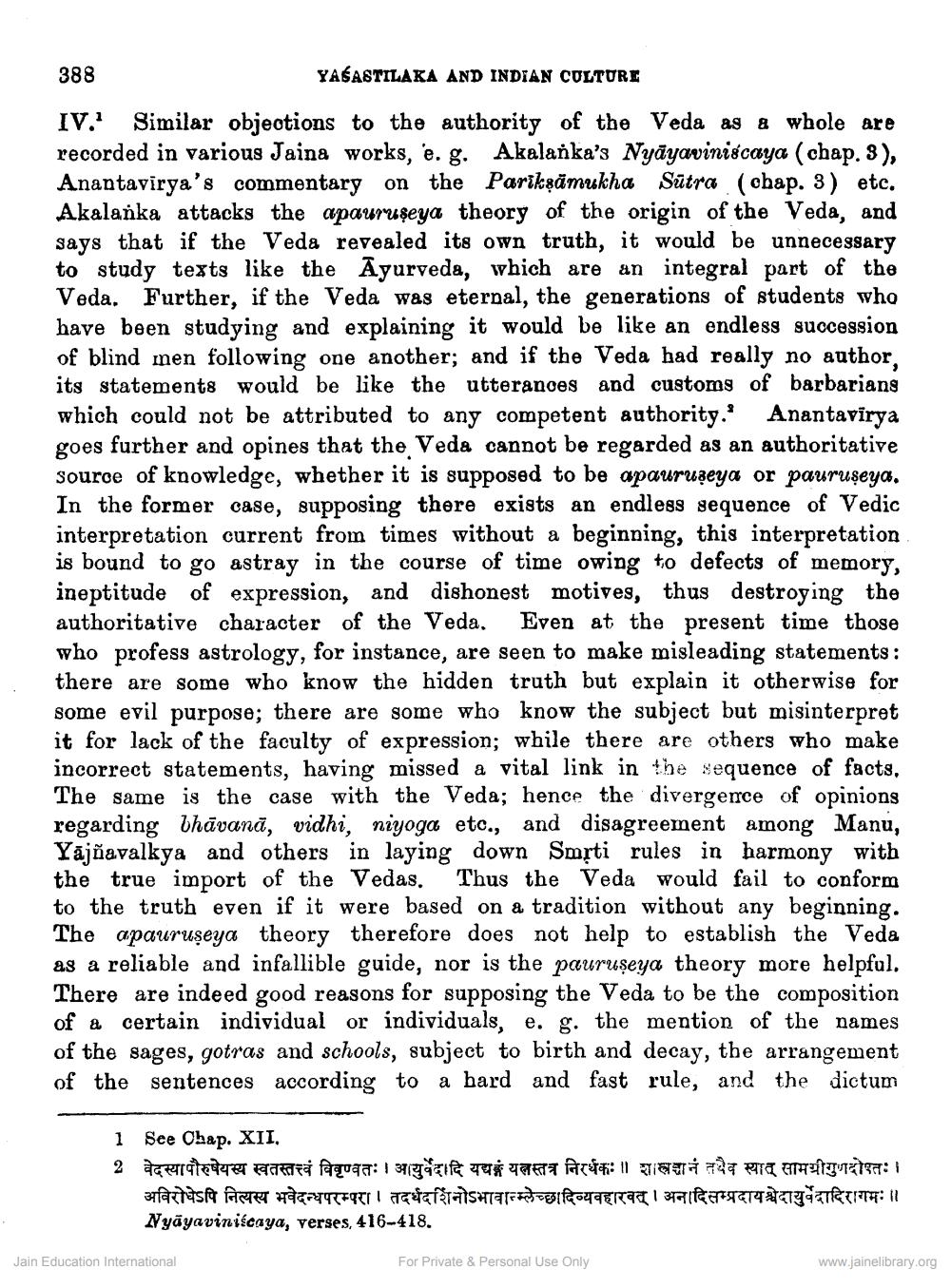________________
388
YASASTILAKA AND INDIAN CULTURE
IV. Similar objections to the authority of the Veda as a whole are recorded in various Jaina works, e. g. Akalanka's Nyāyaviniscaya (chap. 8), Anantavirya's commentary on the Pariksămukha Sūtra (chap. 3) etc. Akalanka attacks the apauruşeya theory of the origin of the Veda, and says that if the Veda revealed its own truth, it would be unnecessary to study texts like the Ayurveda, which are an integral part of the Veda. Further, if the Veda was eternal, the generations of students who have been studying and explaining it would be like an endless succession of blind men following one another; and if the Veda had really no author, its statements would be like the utteranoes and customs of barbarians which could not be attributed to any competent authority.' Anantavīrya goes further and opines that the Veda cannot be regarded as an authoritative source of knowledge, whether it is supposed to be apauruseya or pauruseya. In the former case, supposing there exists an endless sequence of Vedic interpretation current from times without a beginning, this interpretation is bound to go astray in the course of time owing to defects of memory, ineptitude of expression, and dishonest motives, thus destroying the authoritative character of the Veda. Even at the present time those who profess astrology, for instance, are seen to make misleading statements: there are some who know the hidden truth but explain it otherwise for some evil purpose; there are some who know the subject but misinterpret it for lack of the faculty of expression; while there are others who make incorrect statements, having missed a vital link in the sequence of facts, The same is the case with the Veda; hence the divergence of opinions regarding bhāvanā, vidhi, niyoga etc., and disagreement among Manu, Yājñavalkya and others in laying down Smrti rules in harmony with the true import of the Vedas. Thus the Veda would fail to conform to the truth even if it were based on a tradition without any beginning. The apauruşeya theory therefore does not help to establish th as a reliable and infallible guide, nor is the pauruşeya theory more helpful. There are indeed good reasons for supposing the Veda to be the composition of a certain individual or individuals, e. g. the mention of the names of the sages, gotras and schools, subject to birth and decay, the arrangement of the sentences according to a hard and fast rule, and the dictum
1 See Chap. XII, 2 वेदस्यापौरुषेयस्य स्वतस्तत्त्वं विवृण्वतः। आयुर्वेदादि यद्यङ्गं यत्नस्तत्र निरर्थकः ॥ शास्त्रज्ञानं तथैव स्यात् सामग्रीगुणदोपतः।
अविरोधेऽपि नित्यस्य भवेदन्धपरम्परा । तदर्थदर्शिनोऽभावात्म्लेच्छादिव्यवहारवत् । अनादिसम्प्रदायश्चेदायुर्वेदादिरागमः॥ Nyāyaviniscaya, verses, 416-418.
Jain Education International
For Private & Personal Use Only
www.jainelibrary.org




